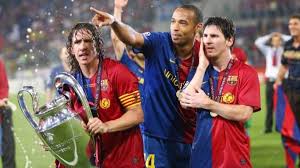
FC Barcelona, one of the most iconic football clubs in the world, has a deep and often overlooked connection with Catalan culture and politics. While most fans are familiar with the club's rich history on the pitch, many don't know that Barcelona's commitment to Catalan identity and autonomy is a defining characteristic of the club. Founded in 1899, FC Barcelona became known as "Més que un club" (More than a club) because of its role in advocating for Catalan independence during times of political repression. Under the regime of General Franco, the Spanish dictator, Catalan culture, including the Catalan language, was suppressed. During this period, Barcelona became a symbol of resistance, using the club's platform to represent Catalan pride and defiance. It's a lesser-known fact that Barcelona's headquarters were raided by Francoist authorities during the Spanish Civil War, and many of its leaders were imprisoned.

Another little-known aspect of Barcelona's history is the club's innovative role in shaping the future of football beyond the sport itself. In the 1970s, the club pioneered the concept of youth development with its La Masia academy, which has since become a model for football academies worldwide. Many football enthusiasts know about its success in producing legendary players like Lionel Messi, Xavi, and Andrés Iniesta, but fewer realize how visionary Barcelona’s approach was at the time. The club's decision to invest in a youth system that nurtured local talent, rather than relying on expensive signings, was revolutionary. This shift, coupled with the club’s adoption of Johan Cruyff's "Total Football" philosophy, laid the groundwork for Barcelona’s dominance in global football, changing how the sport is played and developed at the youth level.
